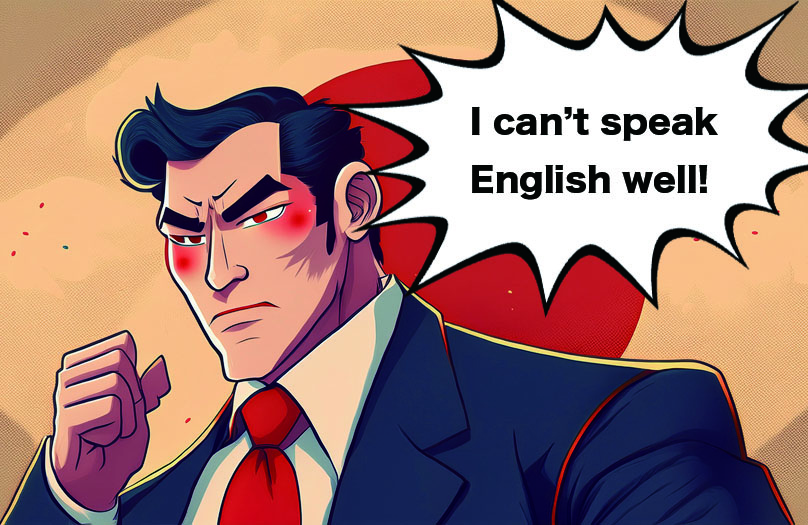Challenges and Background of Hiring Business-Level English Talent in Japan

Companies operating in Japan often struggle to secure talent with business-level English proficiency. This issue is not merely due to individual capability gaps but is rather influenced by a combination of structural problems within the labor market, educational system factors, and cultural background.
1. Structural Issues in the Labor Market
Limited Supply of English-Proficient Talent
The fundamental problem is the small number of individuals in Japan who can use English proficiently. According to one survey, less than 30% of Japanese people can engage in basic daily conversation in English, and fewer than 10% are estimated to be truly fluent. In international comparisons, Japan ranks low in English proficiency. In the 2019 EF English Proficiency Index, Japan was ranked 53rd out of 100 non-English-speaking countries, classified as having “low proficiency,” lagging behind countries like South Korea and China in recent years.
Given this situation, the pool of candidates with advanced English skills suitable for business use is inherently small, leading to a clear supply shortage relative to corporate demand.
Low Labor Market Mobility
In Japan, job turnover and resignation rates are low, making it difficult for qualified talent to circulate in the labor market. Lifetime employment practices remain strong, and compared to countries like the United States, there are fewer job changers, making it challenging for companies to compete for English-speaking talent. In fact, Japan’s annual turnover rate is around 2.5%, significantly lower than the approximately 47% in the U.S. Furthermore, many individuals with strong business English skills are already employed at foreign-affiliated or global companies and are not actively seeking new opportunities, which further complicates talent acquisition.
Gap Between Supply and Demand
While the demand for English-proficient talent continues to rise amid globalization, the supply of such talent has not kept pace. According to a survey by the TOEIC organization, 82.6% of companies identified English as an “important skill for business professionals in the future,” yet 67.0% of companies pointed out that “English proficiency is the skill most lacking among their business professionals” (source: nippon.com). This highlights the severe shortage of individuals with English skills at the level companies expect. As a result, the limited pool of bilingual talent often faces multiple competing job offers, leading to intensified hiring competition among companies.
2. Issues in English Education in Japan
Late Start of English Education
For many years, formal English education in Japan typically began in junior high school (around age 12). There was little exposure to English as a second language during early childhood, and compared to other countries, the later start in learning English contributed to delays in building foundational language skills. Although English activities were finally introduced in upper elementary grades from 2011, and English became a formal subject for 5th and 6th graders starting in 2020, much of the current working population was educated under the older system, where English instruction began in junior high school.
Because of this late start, students had to learn intensively within the six years of junior and senior high school, leading to an overemphasis on reading and writing knowledge.
Reading and Writing Focus, Exam-Oriented Teaching
English education in Japan has traditionally emphasized grammar and reading comprehension skills. In school classes, a significant amount of time is spent on Japanese translations and grammar exercises, while practical activities such as speaking or debating are often neglected. This stems from the fact that, for many years, university entrance exams only evaluated written skills (reading comprehension, grammar, and writing) and listening, with speaking skills never being tested.
As a result, teachers have been compelled to focus on areas relevant to exams, leaving speaking skills development as a lower priority. Consequently, even after studying English for six years in school, many graduates still struggle with basic conversation.
A Ministry of Education survey conducted in 2017 on approximately 60,000 high school seniors found extremely low scores in the “speaking” and “writing” components of English proficiency. Similarly, a shocking result from the 2023 National Academic Ability Survey (for junior high school English) showed that over 60% of students failed to answer even one question correctly on the speaking test.
The Ministry of Education itself has acknowledged that “developing speaking skills remains a challenge,” and the data clearly indicate that the traditional teaching methods have not been effective in fostering communication skills.
Issues with Assessment and Learning Motivation
In Japan’s English education, test scores are heavily prioritized, with a focus on accuracy and exam performance over communication ability. High school and university entrance exams predominantly assess reading comprehension and grammar error correction, where making no mistakes is paramount. This environment often makes students passive, more concerned with avoiding errors than actively speaking.
Moreover, the societal perception that being “good at English” equates to “getting high test scores” has reinforced a culture focused on memorization and practice exercises, with limited opportunities for self-expression or practical conversation training.
Since school evaluations and academic advancement are directly tied to written test results, teachers are compelled to prioritize exam preparation over communication activities. This evaluation system affects students’ motivation for learning English, causing many to see it merely as “a subject for tests.”
Although there has been discussion of incorporating speaking tests into university entrance exams in recent years, implementation has been delayed, and the assessment methods still heavily favor reading and writing.
These systemic educational issues have led to widespread anxiety about English among students and a lack of practical language skills.
.
3. Cultural Background in Japan
3. Cultural Background in Japan
Fear of Making Mistakes (Risk-Averse Mentality)
The Japanese tend to avoid failure or embarrassment, and this cultural trait is evident in language learning as well. Many students refrain from speaking up in English classes, even when they know the answers, due to an excessive fear of making mistakes. Multiple studies consistently report that Japan’s risk-averse culture leads to students being reluctant to speak in foreign language classes.
As a result, even students who possess knowledge do not get enough practice speaking, making it difficult for them to improve their conversation skills. This reluctance extends into the workplace as well, where many professionals feel embarrassed about others hearing their imperfect English and prefer to stay silent until they can speak perfectly.
One survey found that 64.4% of respondents admitted to not wanting to speak English because they lacked confidence in their pronunciation. Anxiety over being ridiculed for pronunciation or grammatical mistakes becomes a significant barrier to communication.
Negative Attitudes and Complexes Toward English
In Japan, there is a widely shared belief that English is “difficult” and “beyond one’s ability.” According to a private survey, about 70% of Japanese people reported having a negative attitude toward English, with many developing this mindset as early as junior high school when English education begins.
This “English allergy” spans generations, with similar studies showing that around 70% of Generation Z (today’s younger generation) also feel uneasy about English. This can be attributed to experiences of rote memorization and exam pressure, which transformed English from a “fun communication tool” into a “painful subject for memorization,” as well as experiences of being criticized for pronunciation or grammatical mistakes.
Additionally, the significant linguistic differences between Japanese and English, such as grammar structure and writing systems, reinforce the perception that English is particularly difficult. The environment where many people around you also struggle with English makes it easier to rationalize, “It’s okay if I can’t do it either.”
These psychological barriers contribute to decreased motivation and fewer opportunities for practical learning, ultimately leading to a scarcity of highly skilled English-speaking talent.
Low Global Orientation and Necessity
Another factor that hampers the development of English talent in Japan is the historically low necessity for English within Japanese society. Japan’s large economy and robust domestic demand have allowed industries to thrive without relying heavily on overseas markets.
Japan’s foreign trade dependency is among the lowest globally, meaning many businesses and jobs could operate within the domestic market without English proficiency. As a result, many people have felt no pressing need to learn English, and there has been limited motivation for global engagement or foreign language acquisition.
Within Japanese companies, finely tuned communication and teamwork in Japanese have long been valued more than English proficiency, leading to situations where even those with English skills had little opportunity to use them within the workplace.
Culturally, Japan also tends to be inward-looking, with fewer students studying abroad and young employees sometimes reluctant to accept overseas assignments. Overall, Japan has not fostered a strong global mindset or environment, contributing to the chronic shortage of English-speaking professionals.
In our interviews as well
In our interview process at Ryze, when we ask candidates, “Would you be comfortable conducting this interview in English?”, many individuals, even those who are quite fluent, respond with “I’m not good at English.”
This reflects a lack of confidence stemming from the belief that unless their English is at a near-native level, they are not proficient. This phenomenon illustrates Japanese people’s tendency toward perfectionism and their deeply rooted anxiety about English.
Conclusion
As outlined above, the difficulty Japanese companies face in hiring business-level English talent stems from a shortage of qualified individuals, compounded by the educational system and cultural attitudes in Japan.
These issues are intertwined and have accumulated over many years, making them difficult to resolve in the short term.
As the data suggests, improving English proficiency requires structural reforms, including enhancements in teaching methods, changes to assessment systems, the creation of more opportunities to use English within companies, and shifts in individual mindsets.The Japanese government is implementing measures to strengthen English education, such as setting a target for 60% of high school graduates to achieve at least the Eiken Grade Pre-2 level. Companies are also increasingly adopting English as an official language in the workplace and supporting employee language training.
In the future, as education and society evolve, it is hoped that the base of English-speaking professionals in Japan will expand, gradually easing the shortage of global talent for Japanese companies.
At Ryze, we have a strong team of both foreign and Japanese bilingual staff, and we have developed unique expertise in sourcing English-speaking talent.
If you are facing challenges in hiring global professionals proficient in English, please feel free to consult with us.4o

